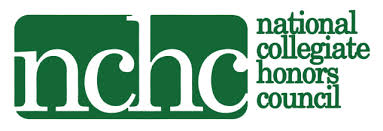The Legacy of Indigenous Food
Legacy - HNRS 1120
Instructor(s): María Yolanda Teran M., Ph.D. (Kichwa)
Course Description
The course offers an interdisciplinary exploration of Indigenous food. Collectively, we will dive deeper and study native seeds and products, ancestral agriculture, various agricultural seasons, ceremonies related to harvest or preparing to sow seeds, methods and mindsets for preparing healthy food and how to engage in sustainable lifestyles. Since ancestral times, Indigenous Peoples have experienced a close relationship with Mother Earth. By cultivating and using their traditional knowledge, food and water has been ensured for all. Indigenous Peoples worked towards getting their collective Sumak Kawsay, wellbeing according to their geographical and cultural context
Texts
I will be sending by email articles form different Indigenous authors before each class. You need to read all of them to learn, understand and discuss with your classmates several concepts related to Indigenous food.
Requirements
Response Papers (2): You will be required to write two critical responses on a key question, comment, or thought from each of the texts. The responses are due September 7 and November 14. The work should be typed, double-spaced, 12-point font, and 3 – 5 pages. Questions to consider in your response.
- What are the author’s main points or arguments?
- What insights have I gained from this reading?
- Where do I agree or disagree with their conclusions?
Final paper: Each student will be required to write a final paper. The student will provide their perspective on an issue/challenge/position, make an argument for the perspective, and support it with knowledge/evidence/data. The format of the paper is: double-spaced, 12-point font, bibliography, and 5 pages. The paper is due December 7.
Presentation: You will present your Final Presentation in a 10-minute presentation. The presentations will be conducted in class. Presentation dates are November 16, 28 and 30.
Participation: You will need to attend class on a regular basis, complete assigned readings, and participate in class discussions. This course is rooted in class discussion. In order for us to learn from one another and create an engaging class environment, it is vital that you attend all classes, complete the readings before class, and come prepared to share your thoughts and questions. Students will also be required to turn in comments (200 words) on the assigned reading for each class session.
About the Instructor(s): María Yolanda Teran M., Ph.D. (Kichwa)
Dr. Yolanda Terán Maigua is a Kichwa woman from Ecuador. She got her Bachelor’s degree in Museology at the Universidade do Rio de Janeiro, “UNI-RIO” in Rio de Janeiro- Brazil and her Master of Arts degree at the University of Leicester in Leicester- England. In 2013 she earned her Ph.D. in Philosophy at the College of Education at the University of New Mexico in Albuquerque, UNM, USA. In 2016 Dr. Terán received the recognition of The House of Representatives of the State of New Mexico for her pioneer achievements at local, national, and international levels on issues of Indigenous education, languages, culture, Indigenous research, Indigenous Peoples human rights, women and children rights, traditional knowledge and its protection, repatriation, and community protocols. The Native American Studies Department during the Indigenous Graduation Ceremony at the University of New Mexico also made a Public Recognition of her unique experience on Indigenous Peoples Human Rights and her global teachings based on her life experience. In 2015 she was nominated by the Department of Native American Studies at UNM for the Luminaria Award offered by the Division of Equity and Inclusion of the University of New Mexico in the United Sates.
She is the Education Coordinator of the Indigenous Women’s Network on Biodiversity for Latin America and the Caribbean (RMIB-LAC). Currently she is teaching at the Department of Native American Studies and the Honors College at UNM. Her current research focuses on culturally appropriate curricula, with a focus on Indigenous Peoples, biodiversity, traditional knowledge, biocommerce, repatriation and associated policies and bio-cultural community protocols. She is a member of the Convention on Biological Diversity, CBD’s Informal Advisory Committees on Communication, Education and Public Awareness (CEPA), on Capacity Building for the Implementation of the Nagoya Protocol and Digital Sequence Information. She is also member of the Informal Indigenous Advisory Group for Latin America at Global Environmental Fund, GEF.



Social Media
For news, information, prizes and more fun stuff follow us on our social media!
Honors College Resources